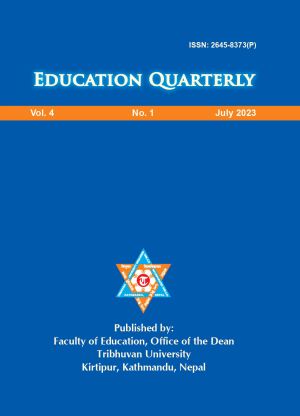Collecting Field-Based Oral Language Data: Experiences and Reflections
DOI:
https://doi.org/10.3126/jeqtu.v4i1.57244Keywords:
Reflection, oral business Nepali, corpus, post-data consent, linguistic cultureAbstract
This article unfolds our experiences and reflections of field-based oral corpus collection from the Nepali language in the business setting applying observation, audio-recording, interview and field notes as qualitative techniques. Understanding our own role as auto ethnographic researchers-as-authors, in this article, we draw a set of fieldwork traits: the simplicity of the fieldworker(s), context-dependence of appropriating research ethics, and understanding fieldwork as a spiral process. Based on our practical experiences, we recognize that the qualitative interview is an inefficacious technique for collecting functional linguistic data. Likewise, preserving the linguistic-cultural identity of the source language in terms of its forms, functions and sense while translating the corpus is challenging. We also recognize some fundamental traits to be followed by an oral corpus collector: relative simultaneity of data collection and analysis, the researcher’s autonomy in selecting the topic, the value of good planning in research, research as work and habits, and life and health as being more important than research. The insights derived herein are expected to be pivotal for the researchers working in a similar field.




